Serving 806 students in grades 9-12, Orland High School ranks in the bottom 50% of all schools in California for overall test scores (math proficiency is bottom 50%, and reading proficiency is bottom 50%).
The percentage of students achieving proficiency in math is 15-19% (which is lower than the California state average of 33%). The percentage of students achieving proficiency in reading/language arts is 45-49% (which is approximately equal to the California state average of 47%).
The student:teacher ratio of 22:1 is higher than the California state level of 21:1.
Minority enrollment is 64% of the student body (majority Hispanic), which is lower than the California state average of 80% (majority Hispanic).
Quick Stats (2025)
- Grades: 9-12
- Enrollment: 806 students
- Student:Teacher Ratio: 22:1
- Minority Enrollment: 64%
- Graduation Rate: ≥95% (Top 20% in CA)
- Overall Testing Rank: Bottom 50%
- Math Proficiency: 15-19% (Btm 50%)
- Reading Proficiency: 45-49% (Top 50%)
- Science Proficiency: 15-19% (Btm 50%)
- Source: National Center for Education Statistics (NCES), CA Dept. of Education
Top Rankings
Orland High School ranks among the top 20% of public schools in California for:
Category
Attribute
Graduation Rate
School Overview
Orland High School's student population of 806 students has grown by 10% over five school years.
The teacher population of 37 teachers has grown by 8% over five school years.
Grades Offered
Grades 9-12
Total Students
806 students
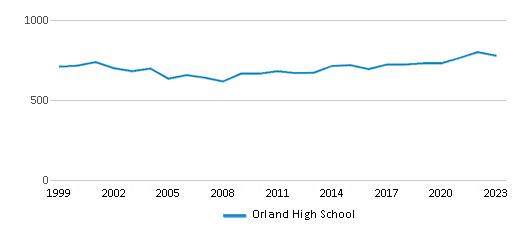
Gender %
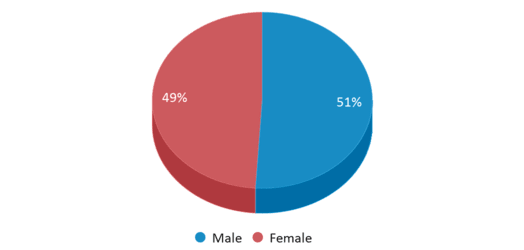
Total Classroom Teachers
37 teachers
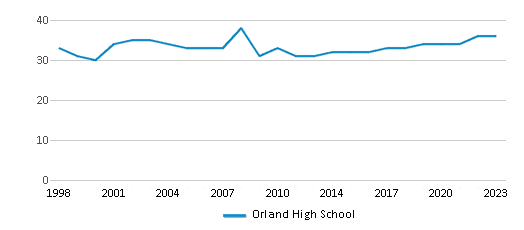
Students by Grade
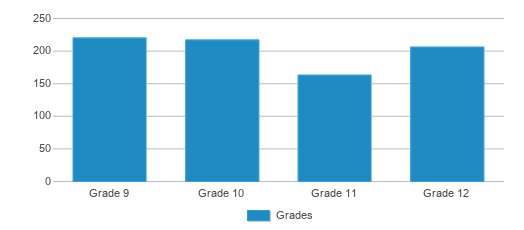
School Calendar
School Rankings
Orland High School ranks within the bottom 50% of all 9,602 schools in California (based off of combined math and reading proficiency testing data).
The diversity score of Orland High School is 0.50, which is less than the diversity score at state average of 0.63. The school's diversity has stayed relatively flat over five school years.
Overall Testing Rank
#5447 out of 9602 schools
(Bottom 50%)
(Bottom 50%)
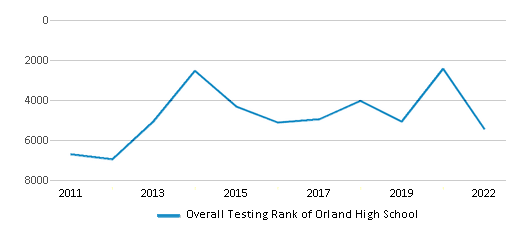
Math Test Scores (% Proficient)
15-19%
33%
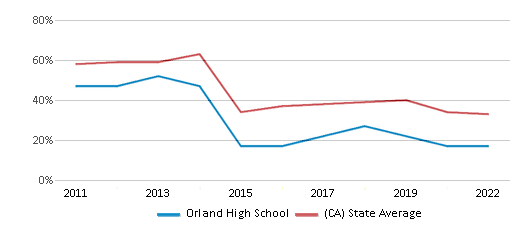
Reading/Language Arts Test Scores (% Proficient)
45-49%
47%
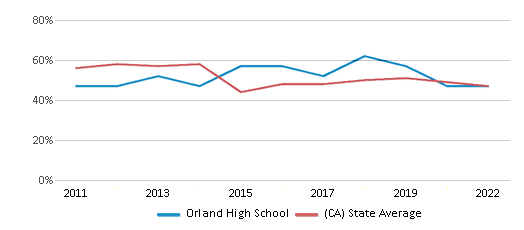
Science Test Scores (% Proficient)
15-19%
29%
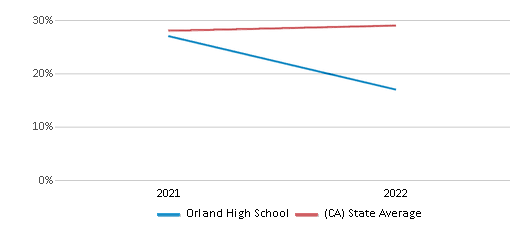
Student : Teacher Ratio
22:1
21:1
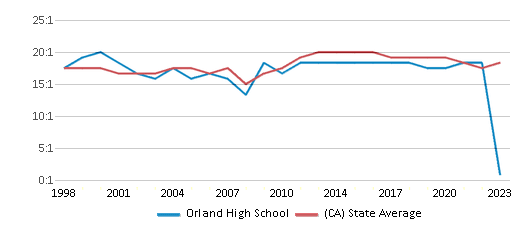
American Indian
1%
1%
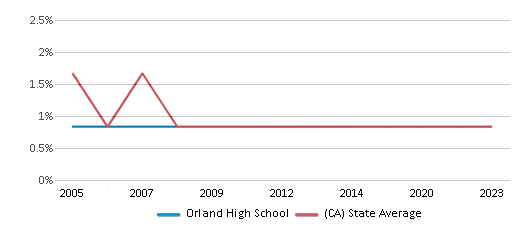
Asian
1%
12%
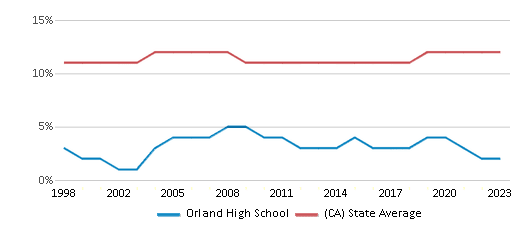
Hispanic
61%
56%
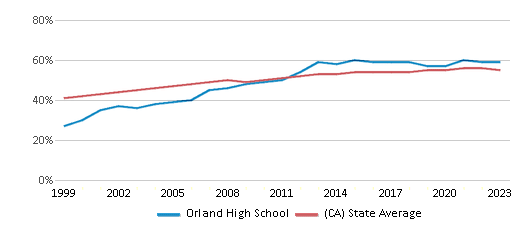
Black
n/a
5%
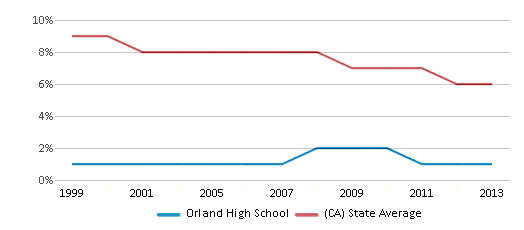
White
36%
20%
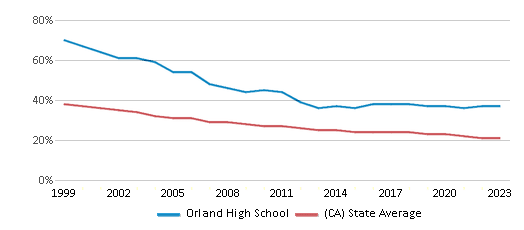
Hawaiian
n/a
n/a
Two or more races
1%
6%
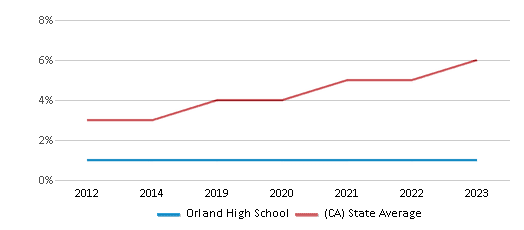
All Ethnic Groups
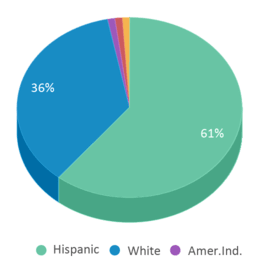
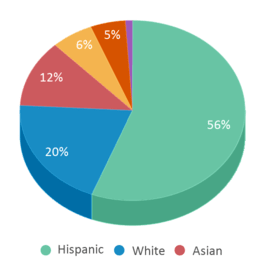
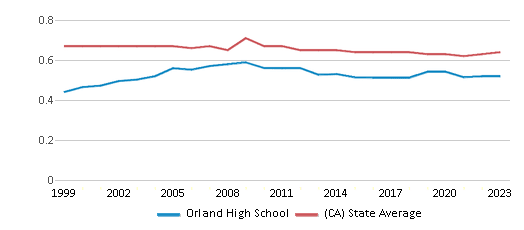
Graduation Rate
≥95%
87%
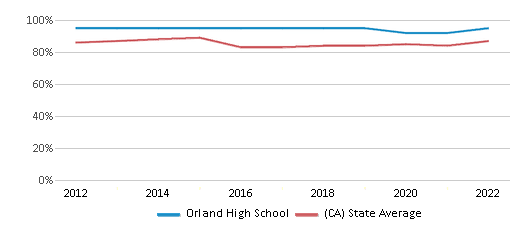
Eligible for Free Lunch
62%
54%
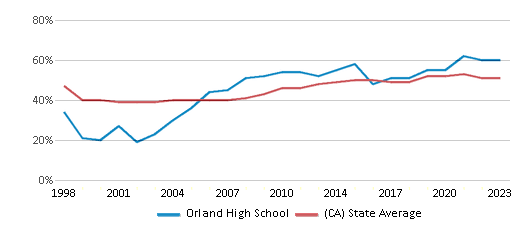
Eligible for Reduced Lunch
16%
8%
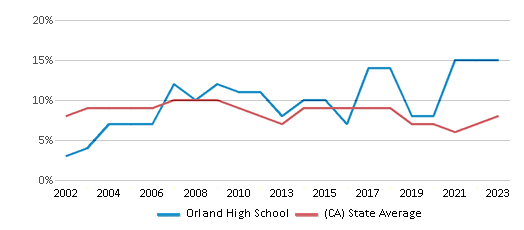
School Statewide Testing
School District Name
Source: National Center for Education Statistics (NCES), CA Dept. of Education
Profile last updated: 02/09/2025
Frequently Asked Questions
What is Orland High School's ranking?
Orland High School is ranked #5447 out of 9,602 schools, which ranks it among the bottom 50% of public schools in California.
What schools are Orland High School often compared to?
Orland High Schoolis often viewed alongside schools like Hamilton High School, Willows High School by visitors of our site.
What percent of students have achieved state testing proficiency in math and reading?
15-19% of students have achieved math proficiency (compared to the 33% CA state average), while 45-49% of students have achieved reading proficiency (compared to the 47% CA state average).
What is the graduation rate of Orland High School?
The graduation rate of Orland High School is 95%, which is higher than the California state average of 87%.
How many students attend Orland High School?
806 students attend Orland High School.
What is the racial composition of the student body?
61% of Orland High School students are Hispanic, 36% of students are White, 1% of students are American Indian, 1% of students are Asian, and 1% of students are Two or more races.
What is the student:teacher ratio of Orland High School?
Orland High School has a student ration of 22:1, which is higher than the California state average of 21:1.
What grades does Orland High School offer ?
Orland High School offers enrollment in grades 9-12
What school district is Orland High School part of?
Orland High School is part of Orland Joint Unified School District.
School Reviews
2 9/23/2014
Horrible learning environment. Recently moved to Orland to improve the quality of life for my family; big mistake. The kids around this town are just not raised with any humility and its a town full of gossip and mean people. The teachers don't listen to the students and the parents don't correct there children. Everyone here is better than everyone else, its terrible. I have 3 straight A students and have never had any problems with previous schools my children attended. Now my kids are constantly ridiculed by bullies and mean people which this town/schools are not in short of. What's wrong with being nice and humble. The people around here act so tough but they are really weak and insecure. Should have just stayed in Los Angeles.
Review Orland High School. Reviews should be a few sentences in length. Please include any comments on:
- Quality of academic programs, teachers, and facilities
- Availability of music, art, sports and other extracurricular activities
Recent Articles

What Is A Charter School?
Explore the world of charter schools in this comprehensive guide. Learn about their history, how they operate, and the pros and cons of this educational innovation. Discover key facts about charter schools, including admission policies, demographics, and funding, as well as what to look for when considering a charter school for your child.

10 Reasons Why High School Sports Benefit Students
Discover the 10 compelling reasons why high school sports are beneficial for students. This comprehensive article explores how athletics enhance academic performance, foster personal growth, and develop crucial life skills. From improved fitness and time management to leadership development and community representation, learn why participating in high school sports can be a game-changer for students' overall success and well-being.

February 05, 2025
Understanding the U.S. Department of Education: Structure, Impact, and EvolutionWe explore how the Department of Education shapes American education, from its cabinet-level leadership to its impact on millions of students, written for general audiences seeking clarity on this vital institution.









